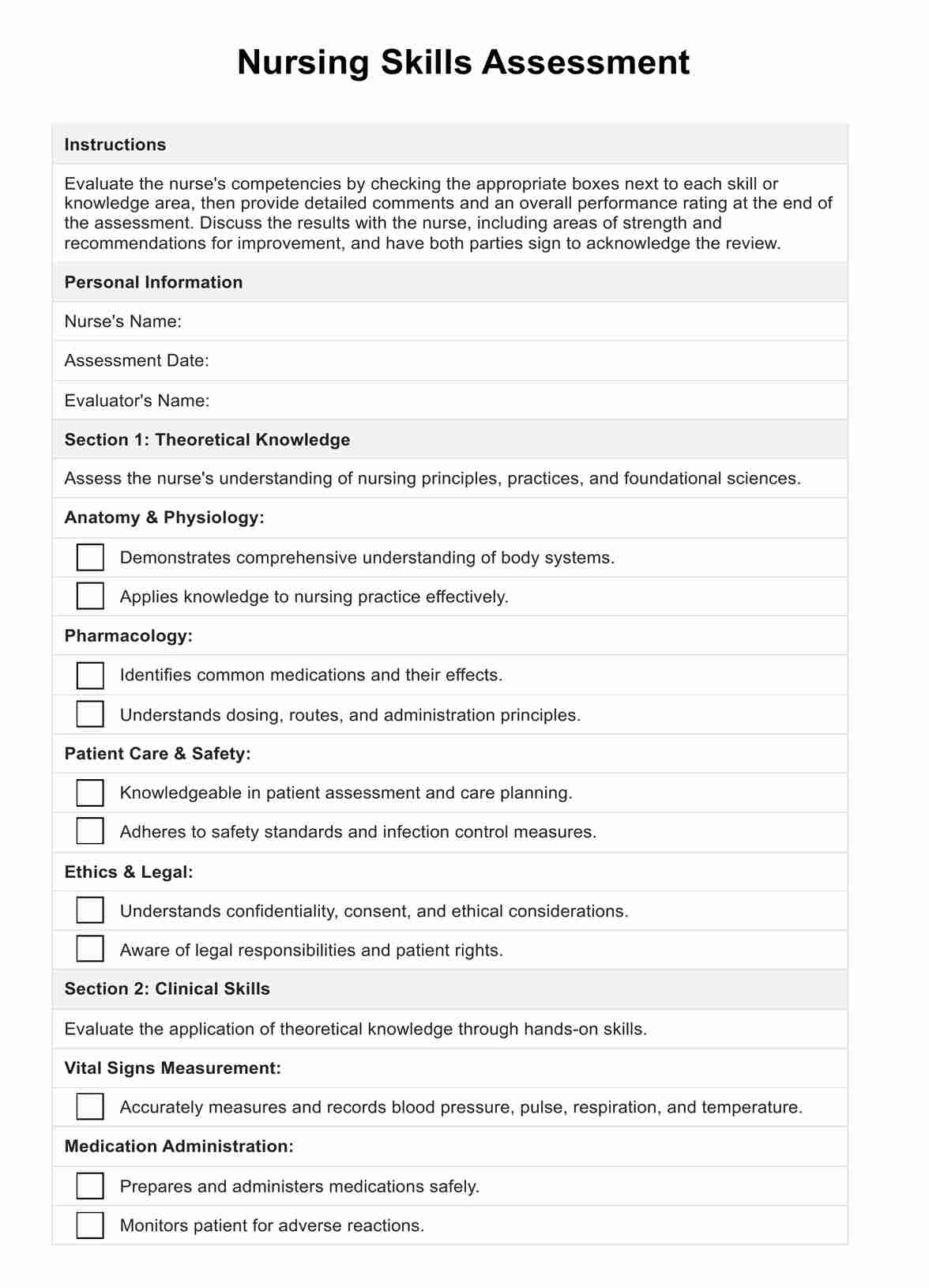A Nursing Skills Assessment includes evaluation of theoretical knowledge, clinical skills (like vital signs and physical examinations), critical thinking, communication abilities, and professionalism.

Nursing Skills Assessment
Know how to evaluate nursing skills and competencies with our comprehensive guide. Includes an example template for a Nursing Skills Assessment. Free PDF download available.
Use Template
Nursing Skills Assessment Template
Commonly asked questions
Assessments are typically conducted during nursing education, pre-employment evaluations, and annual competency reviews to ensure ongoing nursing proficiency.
Yes, Carepatron's practice management software can streamline the process by organizing assessment schedules, managing patient data for evaluations, and facilitating the documentation of assessment outcomes.
EHR and practice management software
Get started for free
*No credit card required
Free
$0/usd
Unlimited clients
Telehealth
1GB of storage
Client portal text
Automated billing and online payments











